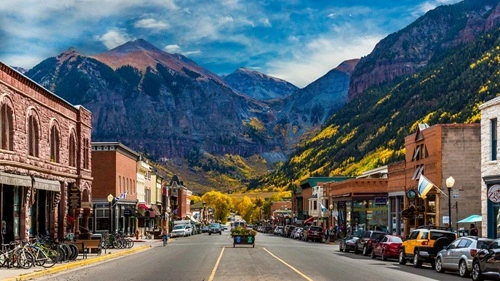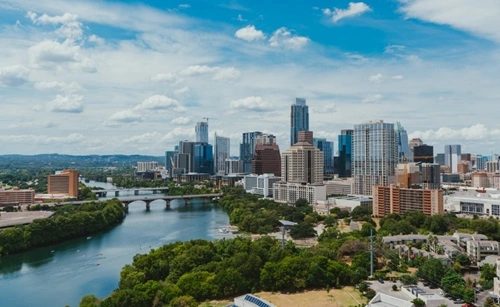Colorado often evokes images of majestic mountains, crisp alpine air, and an active, nature-loving lifestyle. From its booming cities like Denver and Boulder to the scenic wonders of the Rockies and charming mountain towns like Aspen and Telluride, Colorado is an appealing place for people of all ages and backgrounds. But while the Centennial State has a lot to offer, it’s not without its trade-offs. If you’re thinking of moving to Colorado, here’s a balanced breakdown of the pros and cons of living there.
Pros of Living in Colorado

1. Breathtaking Scenery and Outdoor Lifestyle
Colorado is hands-down one of the most beautiful states in the U.S. Home to the Rocky Mountains, expansive forests, and hundreds of alpine lakes, the state is an outdoor enthusiast’s dream. Hiking, skiing, mountain biking, camping, and rock climbing are all part of everyday life. The scenery alone is enough to inspire a move for many people.
2. Four Distinct Seasons
One of Colorado’s biggest draws is its balanced climate. Residents get to enjoy all four seasons—sunny summers, colorful autumns, snowy winters, and blossoming springs. While winters can be cold in the mountains, many cities along the Front Range (like Denver and Colorado Springs) enjoy milder conditions with plenty of sunshine, even during snowy months.
3. Healthy Lifestyle
Colorado consistently ranks as one of the healthiest states in the country. The emphasis on outdoor recreation, clean air, and physical activity translates into a high quality of life. With plenty of parks, trails, and wellness-minded communities, it’s easy to stay active and healthy here.
4. Strong Economy and Low Unemployment
Colorado has a diverse and growing economy. Major industries include aerospace, tech, healthcare, energy, and tourism. Denver, in particular, has seen a tech boom, attracting young professionals and startups. The unemployment rate typically stays below the national average, making it a strong place for job seekers.
5. Highly Rated Education System
Colorado is home to several top-ranked universities, including the University of Colorado and Colorado State University. Public schools in many areas (especially Boulder and Cherry Creek) are highly rated. The state also emphasizes education reform and innovation, which is appealing to families with school-age children.
6. Progressive and Eco-Friendly Culture
Colorado tends to lean progressive on social and environmental issues. There’s a strong commitment to sustainability, green energy, and conservation. Recycling is widely supported, bike-sharing programs are common, and many towns ban plastic bags or support zero-waste initiatives.
Cons of Living in Colorado
1. High Cost of Living
Colorado’s popularity has driven up housing prices and living expenses. Cities like Denver and Boulder have seen home prices surge over the last decade, with limited housing supply pushing many families to suburban or even rural areas. Rent, groceries, and services can also be more expensive than the national average.
2. Traffic and Urban Sprawl
As cities like Denver continue to grow, traffic congestion has become a major issue—especially along the I-25 and I-70 corridors. Public transportation is available, but it’s not as extensive or reliable as in cities like New York or San Francisco. Many residents rely heavily on cars, leading to long commutes and crowded highways.
3. Altitude Adjustment
Colorado’s elevation can be a shock to new residents. Denver sits at over 5,000 feet, and many mountain towns are even higher. Altitude sickness is real and can cause headaches, fatigue, and dehydration for newcomers. The thin air also means sunburn happens faster, and physical exertion can feel more intense until you acclimate.
4. Unpredictable Weather
While Colorado boasts over 300 days of sunshine per year, its weather can be incredibly unpredictable. A warm spring day can turn into a snowstorm overnight. Hail, sudden temperature drops, and late-season snow are common. This unpredictability can be frustrating if you’re used to more stable climates.
5. Wildfire Risk
Like many western states, Colorado faces increasing wildfire threats due to climate change and prolonged droughts. Mountain and forested areas are particularly vulnerable. While urban centers are generally safe, smoke from distant fires can still impact air quality across the state.
6. Tourism Crowds and Rising Population
Colorado’s natural beauty and recreational attractions bring in millions of tourists each year. While tourism fuels the economy, it also leads to overcrowded trails, ski resorts, and traffic—especially in popular destinations like Breckenridge, Vail, and Estes Park. Meanwhile, population growth in cities has led to infrastructure strain and limited housing availability.
Conclusion: Is Colorado the Right Place for You?
Colorado is undoubtedly one of the most visually stunning and dynamic states in the country. Its mix of outdoor adventure, economic opportunity, progressive values, and health-focused culture creates a high quality of life that’s hard to beat. Whether you’re a young professional, a family, or a retiree, there’s something in Colorado for almost everyone.
That said, the cost of living, crowded cities, and environmental challenges are important considerations. Living in Colorado requires adaptability—both to the climate and the lifestyle. If you’re looking for affordable housing and year-round mild weather, you might want to explore other states. But if you’re ready for mountain views, active living, and a bit of unpredictability, Colorado might just be your perfect fit.
Tip: If you’re planning to move, consider spending a few weeks exploring different regions of the state—Denver, Boulder, Fort Collins, Colorado Springs, and mountain towns all offer very different living experiences.



